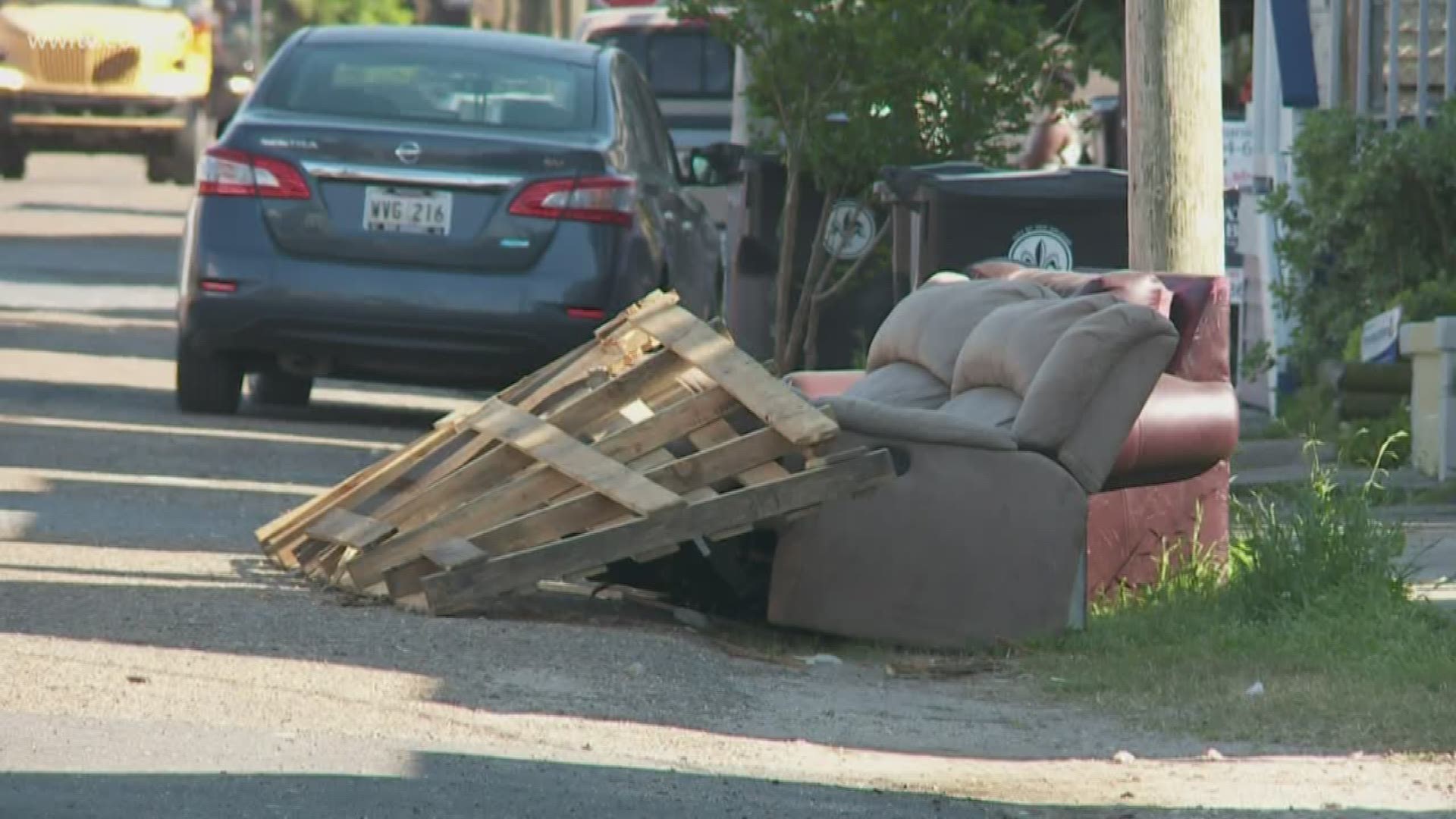NEW ORLEANS —
Furniture litters the sidewalk in front of many Central City homes, signs of a possible eviction.
According to a new study released publicly Tuesday, it’s a growing issue in New Orleans.
“The fact that we stand by as our neighbors are displaced from their homes day in and day out is flatly wrong,” Davida Finger, Law Clinic Professor at Loyola University College of Law said.
The study, conducted from Jan. 1, 2015 to June 30, 2018, looks at data compiled from city court records, which highlights the following neighborhoods: Central City, Hollygrove, St.Roch, Treme and Little Woods.
The study says that in a city where 55 percent of residents are in rental units, 24,000 residents were displaced during the 3-and-a half-year time period.
RELATED: 1 in 4 renters evicted in black neighborhoods: Study finds alarming eviction rates in New Orleans
Those primarily and disproportionately affected by those evictions are African-Americans.
The study found in majority black neighborhoods, one in four renters experienced a court-ordered eviction. In neighborhoods that are majority white, one in 24 renters experienced a court-ordered eviction.
The documents also analyzed the history of what’s known as “Redlining.”
"Redlining is a word that we use to explain the disinvestment that happened by banks and by the government in African American neighborhoods. What we found when we looked at the eviction geography of New Orleans is that those same neighborhoods that experienced such deep disinvestment are experiencing the highest eviction rates around the city. And so we see what's happened as a vestige of segregation of unequal housing opportunities,” Finger said.
Wednesday night, at the Tulane Small Center on Baronne Street, a group of experts discussed the report.
“We’re not going to have the next generation of Trombone Shorty’s unless they can afford to grow up in Orleans Parish," Frank Southall, lead organizer and Community Engagement Coordinator said.
Many who came out, like Algiers resident Robin Jones hopes these numbers lead to positive changes for renters.
"Anybody who's faced with an eviction needs as much time as possible to come out and regroup what the next steps are if the eviction is inevitable,” Jones said.
During the question and answer portion, one landlord expressed her personal issues and frustrations she'd had with renters in the past.
“Some people have an attitude! I had one of my tenants tell me he was going to kill me for evicting him,” the landlord said. “The trash is piling up, the apartment is dirty. The house is filthy. No one cares. When you all talk about evictions, how fast people are being evicted and what's going on with the eviction, you have to look at what's happened with the landlord versus the tenant, and the tenant versus the Landlord."
"The point is that certainly there are bad apples on both sides, and I certainly respect your opinions as a landlord. Those sound like terrible experiences that you've had. But what we're looking at is what remedies are available to each side when something bad happens,” Hannah Adams with Southeast Louisiana Legal Services said.

